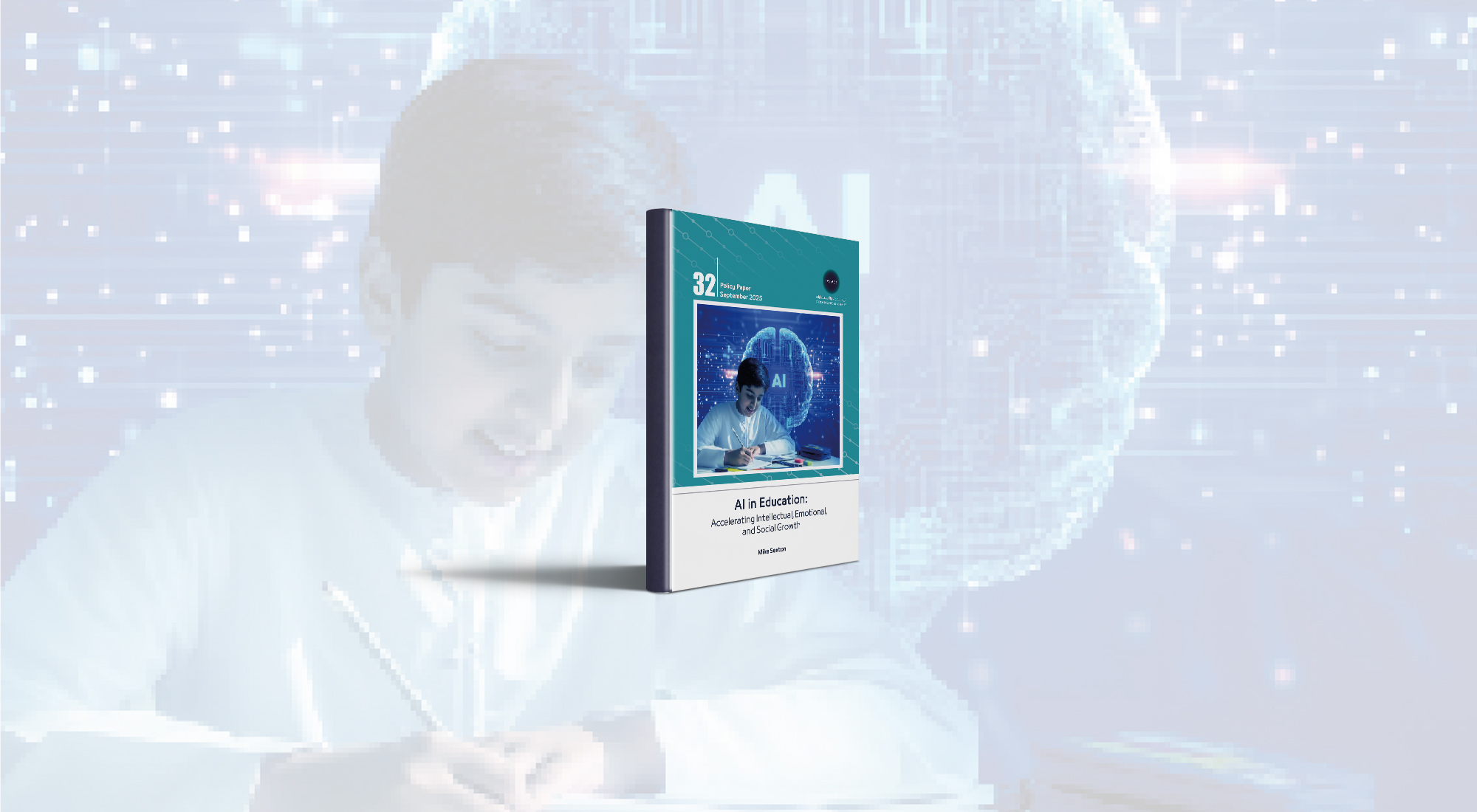TRENDS Research & Advisory has released Issue 32 of its English-language “Policy Papers” series under the title “AI in Education: Accelerating Intellectual, Emotional, and Social Growth”. It explores the transformative opportunities of integrating artificial intelligence (AI) into education, emphasizing its potential to dramatically enhance intellectual, emotional, and social development among students.
Authored by Mike Sexton, Senior Advisor with TRENDS US and a Senior Policy Advisor for Cyber and Artificial Intelligence at Third Way – USA, the paper argues that AI tools like Khanmigo represent an “unprecedented engine for educational change,” and have the potential to solve Bloom’s two-sigma problem by providing universal access to personalized tutoring previously available only to the privileged.
The paper stresses that the benefits of AI extend beyond mere academic achievement, reshaping schools into environments that foster creativity, emotional intelligence, and intrinsic motivation. By harnessing AI, educators can strike a balance between proficiency-based curricula and personalized growth, employing strategies such as continuous incremental improvement (Kaizen) and gamification to maintain motivation for students at all performance levels. Sexton further notes that self-directed, AI-guided learning particularly benefits gifted and neurodiverse students.
The paper argues that the role of teachers must evolve from traditional instruction toward mentorship, classroom management, and emotional development, explaining that this shift emphasizes human oversight and accountability to strengthen the fundamental human connections essential for holistic student growth.
Acknowledging the psychological harm of excessive digital exposure, the paper advocates for substantial screen-free learning opportunities and strict bans on mobile phones in schools. It underscores that subjects like literature, languages, and social studies particularly benefit from human-led, in-person interactions, fostering richer discussions, cultural understanding, and emotional depth.
The paper also highlights that the AI-driven guidance counseling solutions, exemplified by the proposed Guidancy platform, promise revolutionary improvements in student mental health services through proactive, scalable, and equitable emotional support. It concludes that AI integration must be accompanied by rigorous privacy and ethical standards to safeguard student data and mitigate risks.
The paper offers a set of actionable policy recommendations to guide the education community toward a thoughtful, equitable, and effective integration of AI, ensuring every student can reach their full potential in an AI-enhanced future.



